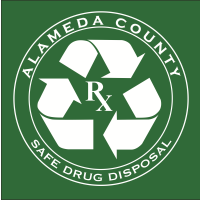U.S. Supreme Court Lets California County Make Big Pharma Pay for Drug Disposal

Who should pay for rounding up soon-to-be-discarded prescription drugs before they wind up poisoning the environment: taxpayers or pharmaceutical companies?
In July 2012, the Alameda County Board of Supervisors in California voted unanimously that Big Pharma should set up a program to get rid of expired and otherwise unwanted drugs, and were promptly taken to court by the Pharmaceutical Research and Manufacturers of America, the Generic Pharmaceutical Association and the Biotechnology Industry Organization.
The drug manufacturers lost (pdf) in U.S. District Court and the U.S. Ninth Circuit Court of Appeals. Last week, the U.S. Supreme Court refused to hear their appeal, opening the door to other jurisdictions to follow suit.
Alameda is the first county in the nation to make drug manufacturers pay at least a part of the cost of encouraging people to do the right thing and giving them a means to do it. That means setting up collection points, publicizing the locations and disposing of the drugs.
At the time of the lawsuit, the county sheriff’s office maintained 28 drug drop-off boxes for abandoned drugs. The Alameda law is based on a program started 18 years ago in British Columbia, Canada, which allows consumers to turn in drugs at pharmacies for no charge. A study in 2009 found that the volume of drugs turned in went steadily up and participation by pharmacies was high.
It was estimated that the industry would be on the hook for about $330,000 a year in the county.
The plaintiffs in the case dispute that such programs change human behavior. But the core of their legal argument was that the law violates the U.S. Constitution’s Interstate Commerce Clause by interfering with the free flow of goods by out-of-state drug manufacturers.
The Ninth Circuit Court recognized that the ordinance would cost the companies money, but noted, “Significantly, Plaintiffs provide no evidence that the Ordinance will interrupt, or even decrease, the ‘flow of goods’ into or out of Alameda.”
But Judge N. Randy Smith, writing wrote for the court, emphasized that it wasn’t ruling on the wisdom of the law: “Opinions vary widely as to whether adoption of the Ordinance was a good idea. We leave that debate to other institutions and the public at large.”
For some, that debate has already been held and they are ready to move. San Francisco passed a similar ordinance in January and has been waiting to see the outcome of the case to implement it. San Mateo County is ready to go and Santa Clara County is considering one, according to the San Francisco Chronicle.
Alameda County now joins Canada, Mexico and much of South America in asking a manufacturer to help clean up the environmental mess made by their product as part of the cost of doing business. It is not a widely-applied concept.
-Ken Broder
To Learn More:
Supreme Court: Big Pharma Must Pay for Prescription Drug Disposal In Alameda County (by Doug Oakley, Oakland Tribune)
High Court Rejects Drug Makers' Challenge to Alameda County's Drug Take-Back Law (by Ron Leuty, San Francisco Business Times)
County Can Make Manufacturers Pay for Discarded Drugs (by Bob Egelko, San Francisco Chronicle)
Alameda County First to Demand Drug Companies Pay for Disposal (by Ken Broder, AllGov California)
Pharmaceutical Research and Manufacturers of America, the Generic Pharmaceutical Association and the Biotechnology Industry Organization v. County of Alameda et al (U.S. Ninth Circuit Court of Appeals) (pdf)
- Top Stories
- Unusual News
- Where is the Money Going?
- Controversies
- U.S. and the World
- Appointments and Resignations
- Latest News
- Trump to Stop Deportations If…
- Trump Denounces World Series
- What If China Invaded the United States?
- Donald Trump Has a Mental Health Problem and It Has a Name
- Trump Goes on Renaming Frenzy






Comments